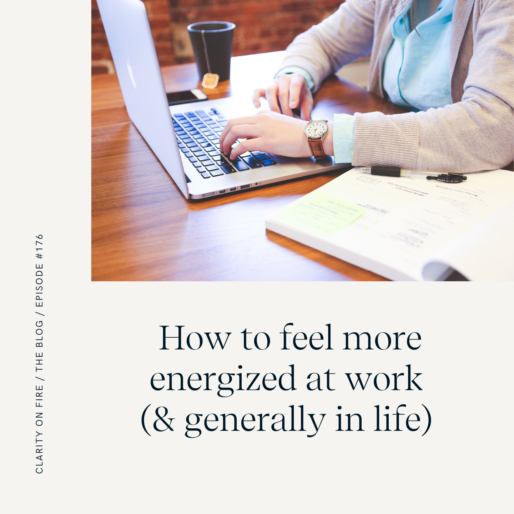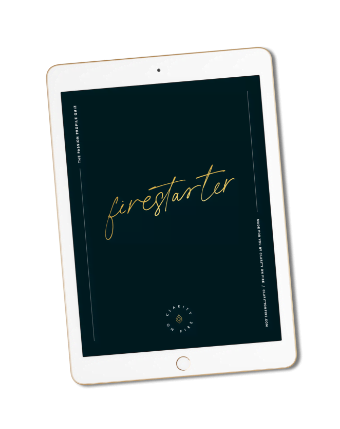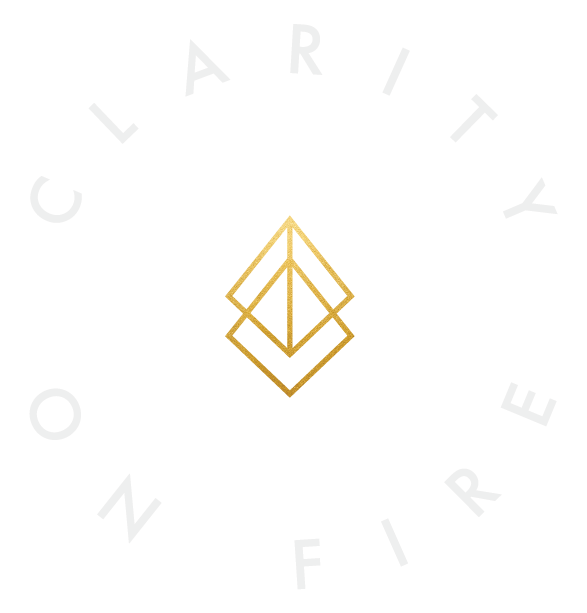I was sitting in a coffee shop the other day, doing some work on my laptop, sipping my after-lunch tea and enjoying the relative quiet, when a rush of people flooded in all at once.
I looked up to see that my quiet little coffee shop, which had been practically empty just 10 minutes before, now was bustling with noise and had a line out the door.
I checked the time — yep, the 2pm coffee rush.
It got me thinking, what’s with the collective need for a caffeine boost mid-afternoon?
I’m sure there are many explanations for why so many of us hit that 2pm slump (not enough sleep, heavy lunches that make you drowsy, sitting for too long, etc.), but I think the biggest reason is because most people’s work is much more draining than it is energizing.
If you spend most of your workday doing things that slowly siphon off your energy, and you don’t have enough natural ways to replenish it, then of course you’ll feel the need to boost your energy reserves any way you can.
Enter, the 2pm latte.
Without some way to re-energize yourself, you’re running on fumes and can hardly make it to the end of the workday, much less do anything fun or productive in your free hours post-work.
While I love a good coffee as much as the next girl, I don’t want you to feel like you have to rely on caffeine (or any other external energy booster) just to barely get through the day.
What if there were a way for you to naturally replenish your energy throughout the day through your work, instead of in spite of your work?
(This applies even if you’re not currently in a job you love … or far from it!)
FIGURE OUT WHAT ENERGIZES YOU VS. WHAT DRAINS YOU
Here’s an experiment I want you to try:
Over the next few days, keep a running list of everything that energizes you throughout the workday.
If you’re working on a particular project and you find yourself really engaged in the create problem-solving part of it, add that to your list.
If you stop by a coworker’s desk to chat and feel better afterward, add it to your list.
If you lead a productive meeting and feel a surge of accomplishment afterward, add it to your list.
If you take a short walk outside to clear your head and replenish your energy, that goes on the list, too.
Anything, no matter how big or small, that gives you even the slightest boost in energy gets compiled on your “Energizing List.”
Then, I want you to create a parallel contrasting list of anything throughout the day that drains you.
Certain projects, people, meetings, tasks, deadlines, lulls in the day, etc., might feel like they’re draining the very life out of you. You’ll know something is draining if you find yourself hard-core procrastinating on it or if it makes you feel heavy and exhausted. Keep track of those things, too.
LOOK FOR THEMES
By the end those few days, you’ll be hyper-aware of your energy fluctuations, and you’ll have a comprehensive list of things that feel really good (and really miserable).
Now it’s time to look at both of your lists — the “Energizing List” and the “Draining List” — and see what patterns emerge.
Do a lot of your energizing examples come from connection with other people? Or from having creative freedom? Or from leadership, or spaciousness, or solo work?
Do you see a pattern of feeling drained when you’re doing busywork? Or when there’s not enough work to fill the day and you’re bored? Or from being around certain people? Or when you’re making client calls?
Recognizing the broader patterns of what energizes you vs. what drains you gives you a kind of “playbook” on understanding yourself better (at work, and really in all areas of life) so you’re clear on what works for you and what doesn’t.
START TO RE-BALANCE THE SCALES
![]() You’re only human, so you don’t have an endless supply of energy. Choose wisely where you direct it.
You’re only human, so you don’t have an endless supply of energy. Choose wisely where you direct it.
Eventually, unless you replenish as much energy as you’re giving out, you’re going to run out (and, soon after, burn out).
That means, you’re a much healthier, happier, more productive, and more engaged worker (and human, for that matter) when you’re spending more of your time doing things that boost your energy and less time on things that drain it.
To start shifting that balance, take a look at your calendar or to-do list (work and personal), and label each upcoming event/task as “energizing” or “draining.”
First, try to eliminate as many of the “draining” activities as possible.
That might mean doing something uncomfortable, like declining meeting requests or delegating some of your work. If there’s absolutely no way to cut something from your draining tasks, find ways to make it less miserable. Take frequent breaks, put in your ear buds and listen to some energizing music, ask to work on it remotely, or mix in things that do energize you.
Then, start finding ways to bring more of the energizing things into your day-to-day routine.
It might help to share your “Energizing List” with your boss so that together you can brainstorm ways for you to spend more of your time on those things. You might also want to start out your day with something that energizes you, whether that means working on your most interesting project first or listening to an inspiring podcast on your way to work. That will help fortify you for whatever comes your way the rest of the day.
What if you’re thinking, “But I’m not energized by anything at my job?”
If you’re truly miserable at your job and you hardly ever feel energized, then it’s time to get really honest with yourself about why you’re still there.
It’s not healthy or sustainable to stay in a job that drains your energy all day, every day. And, if you ask me, life is too short to hate what you do for a living. So if it’s clear that you’re in the absolute wrong job for you, use the “Energizing List” you came up with to direct your job search to something that’s a much better fit.
APPLY THIS TO YOUR WHOLE LIFE
You can try this in your personal life, too.
Pay attention to what brings you energy outside of work (things like plans with friends, yoga class, walking your dog, reading a great book, taking a class, planning an upcoming trip) vs. what drains your energy (possibly grocery shopping, cleaning the house, checking your work email over the weekend, eating junk food).
Try to eliminate or outsource as many draining things as you can, and make a concerted effort to spend your outside-of-work hours doing as many energizing and replenishing things as possible.
So tell me, what are a few things that you know give you an energy boost? What drains you? How can you start to shift the balance? Leave a comment to let me know!
Much Love,
Kristen (& Rachel)
LINKS
Submit your question for a future episode of Dear Krachel
Podcast: Play in new window | Download




That’s now on my Action list for the rest of the day/week. Thank you for the tip.
As an aside (sorry) – might you be doing any blog posts for those of us who are Thriver-Firestarter? (The least understood – even by us.)
Hey Andrea! It’s awesome that you’re trying this energizing/draining experiment. I’d love to hear how it goes!
And I totally get the Thriver-Firestarter challenge — both Rachel and I have that same combo, and it can sometimes may you feel like you’re stuck in the middle of an internal tug-of-war. I don’t generally write blogs on one particular Passion Profile (or one combination) because I try to make our blog posts more widely relevant. However, I will share something here that might help.
I find that Fire-Thrivers tend to gravitate toward one of two big directions (these aren’t your only two choices, of course, this is just what I’ve observed in lots of people with this combo):
“Sometimes you just don’t want to roll around with nice!” I love it—hello, fellow Fire-thrivers, I hope you’re well. I’m on the verge of changing jobs again—my job is pleasant and easy enough. I just signed up for health insurance, which is supposed to be some big milestone, right? Snore. I guess it’s a good idea to have it, though. I’m reluctant to make a switch because like I said, the job is way and pleasant enough—but I have to cook, clean, and do laundry. It’s draining.I get so tired of it that I don’t even want to do my own chores. And I have to be there so many hours, including evenings and twelve hour shifts on weekends, that I have no life of my own. And my creativity is zapped. It’s almost impossible to write content for my future website.
A plus is that I don’t have to get up super early, but I do have to have a second job. I don’t know if I want to go back into a bright, loud office environment with ringing phones at 8 am. But it might free up some time and I could rest more, which I think is more valuable than money. That said, I do need a certain amount to live—
I think I could be a pretty decent coach myself, but the ten grand for so many things. Can you become a coach without school? 😁 Thanks for letting me ramble. I have to go be a caregiver now
Hey Cassie!
Totally understand how things that are technically easy can still be super draining. And I also agree that, at a certain point, rest and having spare creative energy can be more valuable than money! And I agree that you could be a great coach, if you wanted! And here’s the deal: Anyone can call themselves a coach. There’s no laws against it! But can you become a really GOOD coach for much less than 10K? In our experience, no. It’s a pretty deep, intricate skillset. To learn how to do it, and do it well, there’s a certain level of time, energy, and money needed. But, at least at iPEC, there are financing options. A lot of people don’t have that much $$$ just sitting around! So that’s always a possibility if you’re determined to get trained but don’t know if you could afford it outright. 🙂